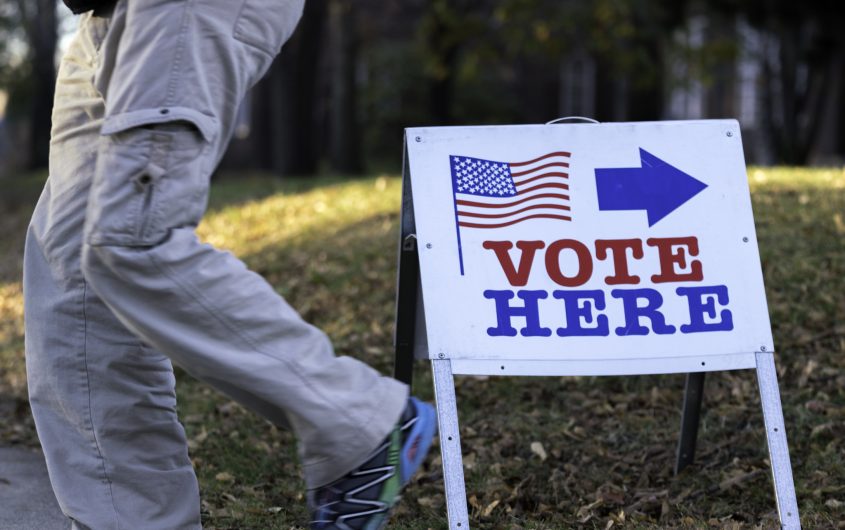
Lorie Shaull via Flickr
Election Observations from Germany

Rana Deep Islam
McKinsey & Company
Dr. Rana Deep Islam works as a Berlin-based Client Development Advisor for the Public Sector at McKinsey & Company. Prior to joining McKinsey & Company he had been a Senior Manager at EY and a campaign manager for the SPD’s chancellor candidate Martin Schulz during his campaign in the run-up to the German federal elections in 2017. Prior to that, he was in charge of the management of the European project portfolio at Stiftung Mercator and gained further professional experience at the Bertelsmann Foundation, the European Parliament, the School of Advanced International Studies (SAIS), and the Gesellschaft für Internationale Zusammenarbeit (GIZ). Rana holds an MA from the College of Europe in Bruges and a PhD from the University of Erlangen-Nurnberg. He was a DAAD/AGI Research Fellow in May and June 2011. Rana publishes frequently in academic journals and media on European affairs and long-term economic development.
An Election Day that leaves many of us perplexed. Four observations:
First: There is a lot of talk again about European autonomy and strategic sovereignty of the Europeans. Only, I lack faith. As usual, we are witnessing the flare-up of this debate (including in 2016 after the first election of Donald Trump) combined with the meaningful words that the EU must finally assume international responsibility. But concrete results are not to be observed (which is regularly proven by the EU’s helplessness in international relations and security affairs).
Second: Without Corona and the U.S. administration’s obvious inability to act, Donald Trump would probably have secured re-election “in passing.” Even if Biden were to win by one vote, the central message of this election evening is that racism, sexism, narcissism, and corruption turn out to be a mobilizing factor even in democratic societies. In view of the populist developments in numerous EU member states, U.S. conditions should be a warning signal for us Europeans. The extent of polarization that can be observed in the United States, the drifting apart of population groups, and the breaking up of social consensus is also possible in Europe. So let us not point fingers, but rather stay humble and move things in a democratic direction at first in our own backyard.
Third: The EU and its member states regularly condemn anti-democratic developments worldwide. In view of Donald Trump’s announcement to stop the counting of votes, it would be an important signal if Europeans would once again make use of their still-strong voice and emphasize the self-evident need to comply with democratic standards. It would certainly not be wrong if Ursula von der Leyen, Charles Michel, and Angela Merkel could pick up the phone and ask the Slovenian Prime Minister Janša why he congratulated Donald Trump on an “election victory” without waiting for the votes to be counted. This is another example of lacking European unity.
Fourth: If Donald Trump should win the election, strategic cooperation with the U.S. states is more important than ever. We should not reduce the U.S. to its government in Washington, and this is especially true in light of the urgently needed implementation of the Paris Climate Agreement. What about a permanent involvement of (selected) U.S. states in the EU Committee of the Regions? Why don’t the U.S. states also open offices in Brussels to make themselves heard? The German Bundesländer could serve as a role model in this regard.
Finally, the so-true words of Carolin Emcke (from her great book “Gegen den Hass”), come to my mind today: “To not only condemn hatred and violence, but to look at how they work, always means to show where something else would have been possible, where someone could have decided differently, where someone could have intervened, where someone could have got out. Not simply to reject hatred and violence, but to observe with which rhetorical strategies, with which metaphors or images hatred is generated and channeled, always also contains the conviction to mark those places in the patterns of the narrative where they can be interrupted or infiltrated.”
In this sense, let us stand up. Against hatred. Against division. On the large and the small. Everyone for him or herself and all of us together. And now we look to Michigan, Wisconsin, and Pennsylvania. It’s not over ‘til it’s over.








